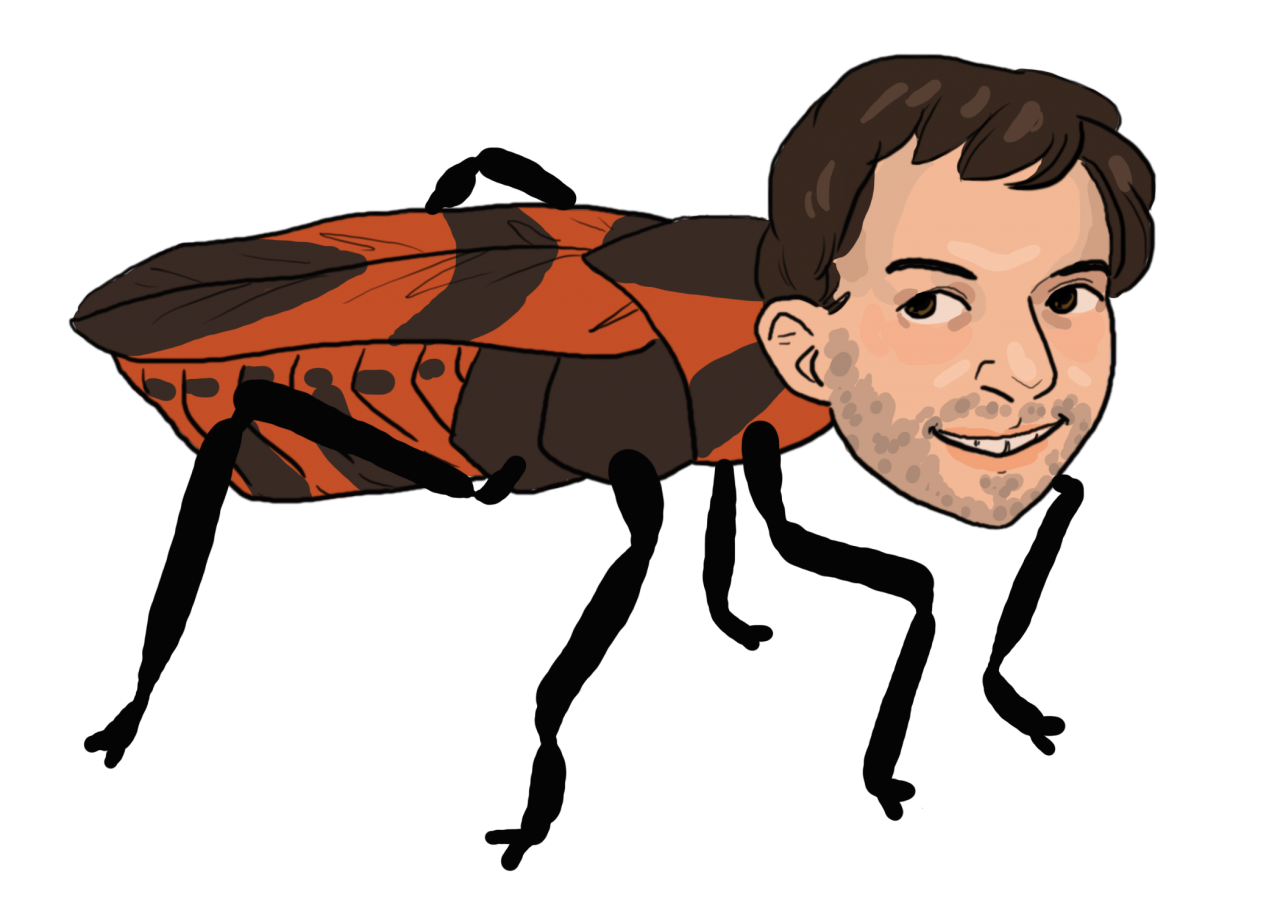Illustration by Ren Rader
Austin
I never thought I would try to become vegetarian until the most stereotypical liberal arts college occurrence happened: I took an English class that changed my mind. I knew when I signed up for a class called “Animal Theory” that it would severely alter how I thought of animals, but the class did more than just that. It made me constantly work to be more aware of how I interact with animals daily, and eventually led me to stop getting chicken in my Chipotle salad and become squeamish whenever I see bacon. Now, this isn’t the point of the class by any means, but the result of the class’s constant questioning of concepts like the human-animal binary and the ludicrous use of the title “animal” to describe over 5 billion incredibly unique species has made me more and more aware of the human bubble we all live in and force animals to live in as well.
The class has even made me consider the next time I want a pet. What does it mean to own an animal? Why do we feel the need to do it? Is it as simple as “they make me smile?” How can I make sure the other being living with me is happy and likes the name I gave it? I have developed an answer to at least the last one. I intend on placing 10 bowls filled with the same food, each with a different name. Over a week, whichever bowl the dog that lives with me eats at the most will be its name, but I will also leave more room for it to choose its name, though I’m not quite sure how to achieve that yet. That may be the best part of the whole class — it provides questions upon questions and so much new information to process that all you are left with isn’t an answer, but a question one should try to answer their whole life: “What does it mean to be an animal?” If you have an answer, please let me know and if it doesn’t pass muster, you have to be vegetarian.
Kayla
I vividly remember the day I became a vegetarian. It was Nov. 2, 2015. After reading an article featuring Jessica Chastain, I decided this was the day I would change my life for good. Jessica Chastain attributed her veganism to minimizing harm, saying that “While I am on this planet, I want everyone I meet to know that I am grateful they are here.” Except there was one issue: I didn’t want people knowing I was a vegetarian because I cared about non-human animals. For four years, I lied and said environmentalism was the primary reason I refrained from eating any living being. Since taking Dr. Rando’s animal studies class, however, I’ve grown comfortable with admitting that I’m vegetarian because I care about the lives of non-human animals. It seems if you want to be taken seriously, you can’t argue for the rights of non-human animals based on your emotions. Gradually, however, I’ve learned to grow comfortable in my sensitivity.
A few classes ago, Dr. Rando revealed to us that he doesn’t kill any living being, be it a spider, mosquito, or rat. This doesn’t mean he lives in a cockroach-infested house — although no judgement if he does — but rather that he respects every living being as one that has their own worldview and perspective. Until recently, I didn’t believe anyone was paying much attention to my babbling about animal studies; it seems to be never-ending, after all. That was until my friend told me that she almost killed a cockroach, but didn’t because she remembered it had its own worldview.
Noelle
A timeless part of Trinity humanities major culture is saying that you want to be vegetarian (even if currently you are eating Tiger Tenders in the Commons). I certainly also have gone through several phases of wanting to be vegetarian or vegan. I’ve never really enjoyed the taste of meat and killing animals doesn’t seem ideal. However, my Animal Studies class this fall helped me explore these concepts in new ways, with people who were also trying to answer these questions. What does it mean that we never see animals anymore outside of zoos and private enclosures? Can poetry, in the words of Elizabeth Costello in “The Lives of Animals,” really “close down the slaughterhouse?” Can we ever know what a bat is thinking, and more importantly, is it worth it to make the attempt?
As I said before, I think the question of “Is it ethical to eat animals?” isn’t what we should be asking. I’m not terribly invested in criticizing people who eat meat, to be honest (this approach blames individual consumers who are trying to get by in life, instead of the systems that facilitate animal exploitation such as capitalism). While I love Impossible Burger, switching to plant protein isn’t direct action in stopping climate change. Vegan politics (or anti-animal oppression politics in general) are meaningless if not coupled with critical thinking, an ethos of compassion and open-mindedness about how we relate to nonhuman and human animals. In a society that privileges human speech and actions, making and holding space for animal ways of thinking, being and knowing is vital. Anyway, if you see me on the steps of Coates, making sustained eye contact with a Trinicat and trying not to cry, know that I am trying my best.







Ben Gonzalez • Nov 22, 2019 at 10:32 am
This joint column made me smile so hard. I sometimes forget why I’m a vegetarian when it’s easy to feel like you can’t make change on your own, but this kind of thoughtful analysis reminds me: It’s not about changing the world on your own, it’s about beginning to think about the other side.